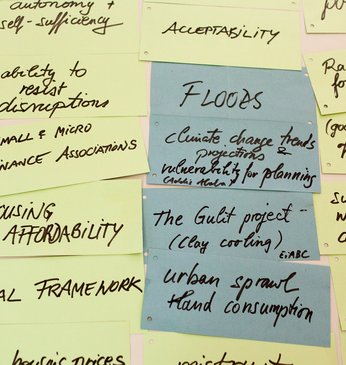Students (Bachelor's from the sixth semester onward and Master's students) of disciplines related to spatial development like architecture, landscape architecture, engineering, urban and spatial planning, geography, international development, and others
Previous knowledge:
- Interest to work in a holistic and interdisciplinary way on urban environments and sustainability
- Basics in GIS are desirable (no condition) and/or affinity to CAD
- Good knowledge of English language
Preparation: As part of their application, participants propose 1-3 examples (micro scale) from their hometown or the city they are studying, which they relate to the subject of urban heat or heat mitigation and describe those in short (max. 1- 2 A 4 pages, image can be included). After being selected as course participant, you will be asked to further investigate and present your study cases in Weimar.


